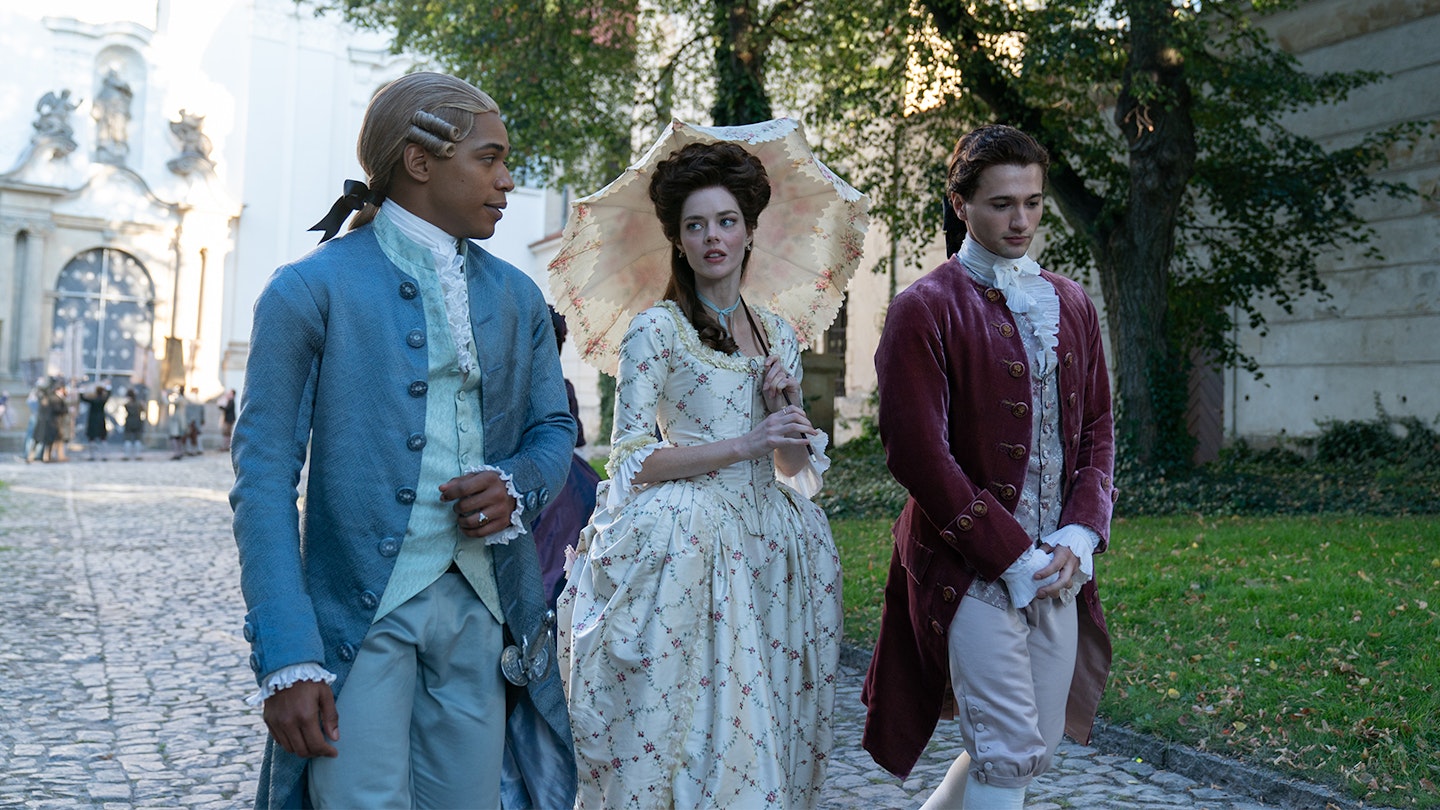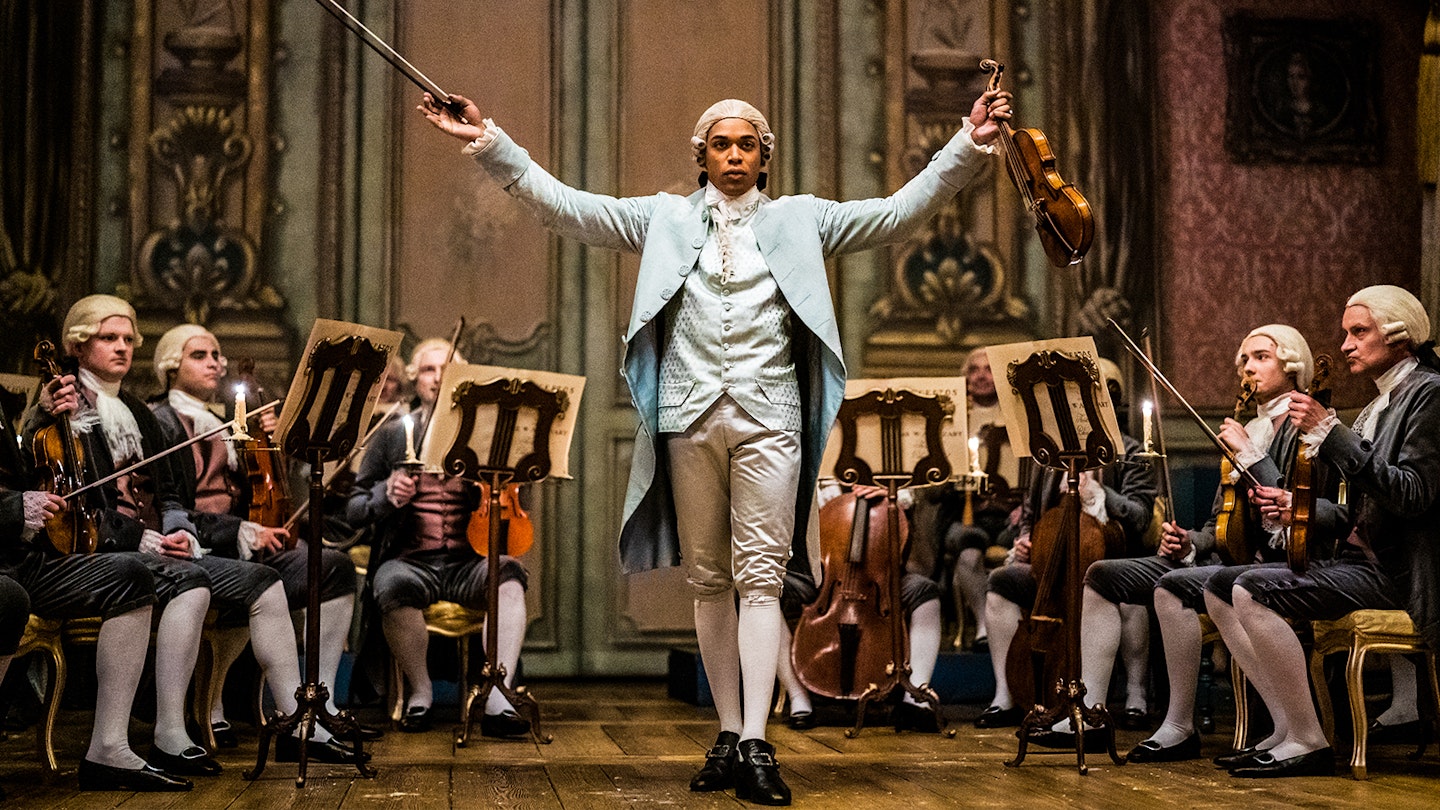“You are a tourist in their world,” Joseph Bologne (Kelvin Harrison Jr, giving one of his liveliest performances to date) is reminded by the Black people around him, surveying his attempts to assimilate into the white French aristocracy. Directed by Stephen Williams and written by Stefani Robinson, Chevalier is most exciting when we see the virtuoso musician upending that world — with no more entertaining and cathartic example than its stupendous opening. The spirited preamble relishes the opportunity to introduce us to a pivotal figure who has long been overlooked, with delightful and colourful dramatic embellishments — such as a preening, pompous Mozart (Joseph Prowen, speaking in posh Received Pronunciation) being upstaged by Saint-Georges in a violin battle. The camera sweeps around them — and sweeps the audience up in the future Chevalier’s confidence.

The showmanship, we learn, is not just ego; it’s self-defence: a flashback to his white father, leaving him at a boarding school, stresses that he “must be excellent, always excellent”. It’s pressure his white peers don’t have, but Joseph has to constantly prove his worth, because to falter is to affirm the beliefs of those condescending peers. Even with his wealth and status, race overrides nationality and social class.
Impresses as a period piece actually interested in Blackness as part of a social dynamic.
The film quickly brushes his origin story and rise to prominence aside to get to Saint-Georges’ moment of clarity regarding the approval of white French people (coded here as the British upper classes, in a double-barrel blast of righteous mockery of two colonial nations). Between hostile conversations with the white French elite, full of barbs with slightly modern inflections, Saint-Georges consults with Marie Antoinette (Lucy Boynton) — a figure with her own famously anachronistic biopic — but even her favour is not enough of a shield. There’s not-so-hidden hostility in every room, Robinson’s script nestling contemporary arguments and inflections amid subtle barbs, polite chuckles and archaic aristocratic customs.
While Williams opts for traditional, almost painterly imagery, the large and opulent rooms bathed in natural lighting, the film’s cinematography feels slightly unimaginative, adding to what feels like a long cooldown from its electrifying opening. This sense of deflation only continues as Saint-Georges engages in a doomed affair with Marie-Josephine de Montalembert (Samara Weaving) that feels far less urgent than the other themes at play.
The film impresses as a period piece actually interested in Blackness as part of a social dynamic and how it would affect the wealthy, so it’s a shame that it gradually loses its infectious energy. With its upending of audience expectations around historical figures, the best moments of Chevalier both celebrate and lament the great showmen that have spent so long waiting to be honoured.
